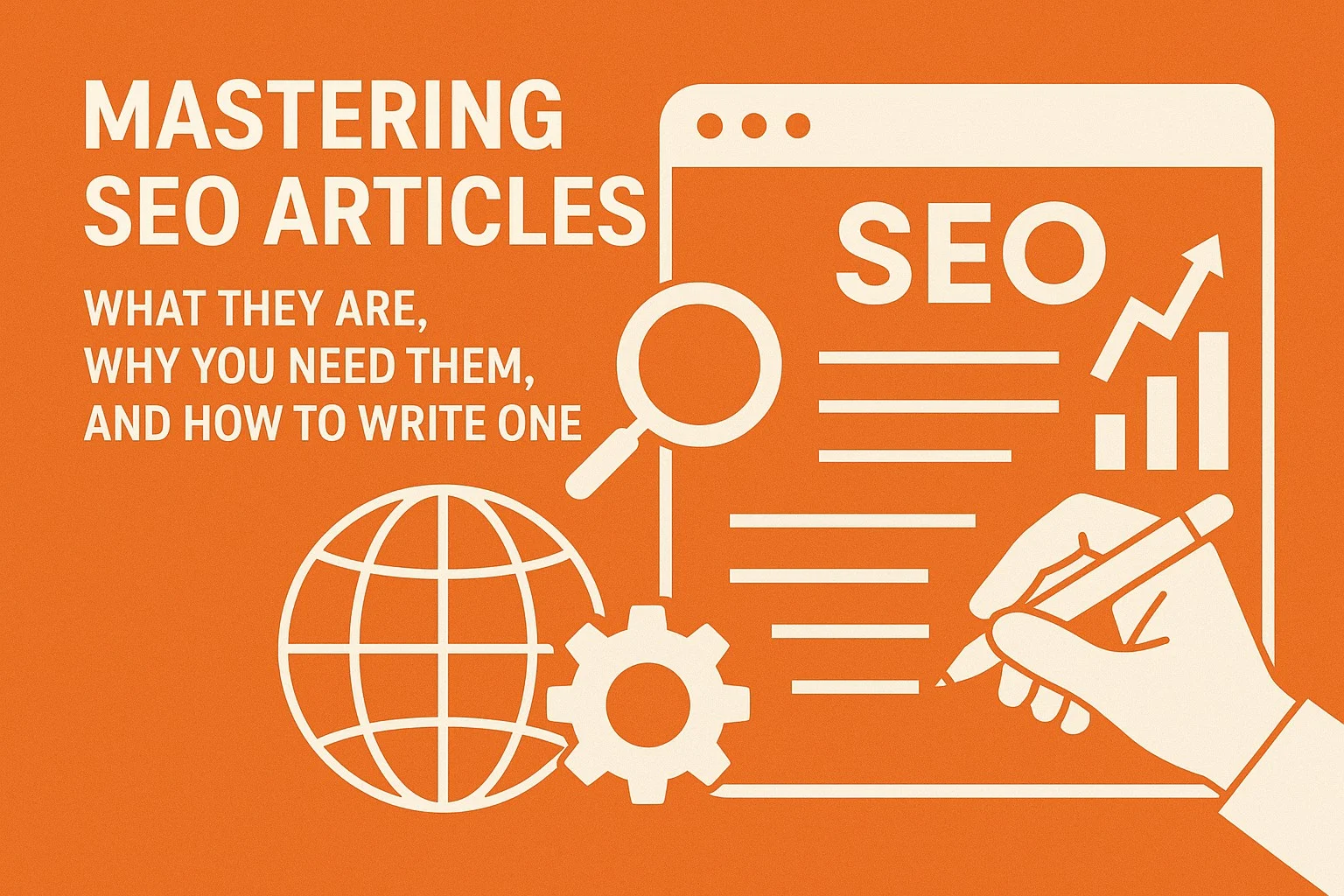You’ve just written an SEO article—and it’s pretty good. But is it optimized enough to compete with millions of similar pieces indexed by Google?
In this post, we’ll walk you through what makes an SEO article different, why it matters for your business, and exactly how to create one that ranks.
What Is an SEO Article?
An SEO article is a piece of content—like a blog post or page—designed to inform, engage, and rank well on search engines. It combines valuable information for readers with strategic optimization techniques that help search engines understand and prioritize it.
Why Should You Write SEO Articles?
1. Web Content Fuels Google
Without pages to crawl and index, Google would have nothing to serve users. Your SEO article helps fill this need with quality content.
2. Search Engines Still Need Help
Even with AI advancements, search engines rely on keyword signals and structured content to match user intent accurately. That’s where optimization comes in.
3. SEO Drives Traffic and Revenue
Organic search accounts for over 50% of total web traffic and can drive up to 59% of revenue. Ranking higher means more visibility, leads, and sales.
4. Build Trust and Authority
Google rewards sites that showcase E-E-A-T (Experience, Expertise, Authority, Trust). Well-written articles contribute to that credibility.
5. Delight and Retain Your Audience
Helpful, engaging content keeps users on your site longer, increases return visits, and encourages backlinks—another SEO win.
6. Outrank the Competition
Analyzing what already ranks helps you outdo it—creating a smarter, deeper, and more relevant article.
How to Write an SEO Article: 7 Key Steps
Step 1: Define Your Document Specs
Before writing, outline key specs—topic, main keyword, meta title, URL, target audience, etc. This serves as your blueprint.
Step 2: Research Keywords
Use tools like Google Keyword Planner, Ahrefs, or PreWriter.ai to find relevant search queries. Focus on:
- A main keyword
- 1–2 secondary keywords
- Real user search intent
Step 3: Analyze Competitors
Use SEO tools to review top-ranking articles for your keywords. Study their structure, length, keyword use, and value. Then, aim to meet or exceed that quality.
Step 4: Write Expert-Level Content
Write content that showcases real experience and insight. Whether human-written or AI-assisted, make sure it meets Google’s content quality standards. Avoid fluff. Focus on:
- Clarity and accuracy
- Reader-first structure
- Expert input or sources
Step 5: Optimize Your Article
Naturally integrate keywords into:
- Title and headings
- Introduction and conclusion
- Throughout the body
Optimize meta tags, use schema where possible, and ensure all on-page elements align with best practices.
Step 6: Review and Edit
Ensure your article:
- Flows logically
- Is free from errors
- Meets your brand voice
- Complies with Google’s SEO and content guidelines
Always hold guest or third-party content to the same standard.
Step 7: Track Performance
Use tools like Google Analytics and Search Console to track:
- Page views
- Time on page
- Search queries
Based on performance data, revise or refresh content regularly to maintain its SEO impact.
FAQ: How Do SEO Articles Improve Visibility and Traffic?
SEO articles improve visibility by:
- Targeting high-volume, relevant search terms
- Earning backlinks and shares
- Keeping visitors engaged longer
- Signaling expertise to Google
They drive traffic by meeting real user needs, encouraging click-throughs, and converting visitors into leads.
Quick SEO Article Checklist
- Define your audience and intent
- Do keyword research
- Analyze the SERP competition
- Structure content clearly (H1-H3, bullet points, short paragraphs)
- Optimize with keywords, meta tags, alt text, and internal/external links
- Add visuals for engagement
- Share on social media and outreach for backlinks
- Track performance, refine, and refresh
Final Thoughts
An SEO article isn’t just content—it’s a strategic asset. It helps you attract search traffic, build authority, and connect with your audience.
By following these proven steps and focusing on quality, you’ll be publishing content that doesn’t just show up—but stands out.
Need help crafting SEO articles that get results? Let Organic Ranker do the heavy lifting. Contact us at rank@organicranker.com.





Leave a Reply